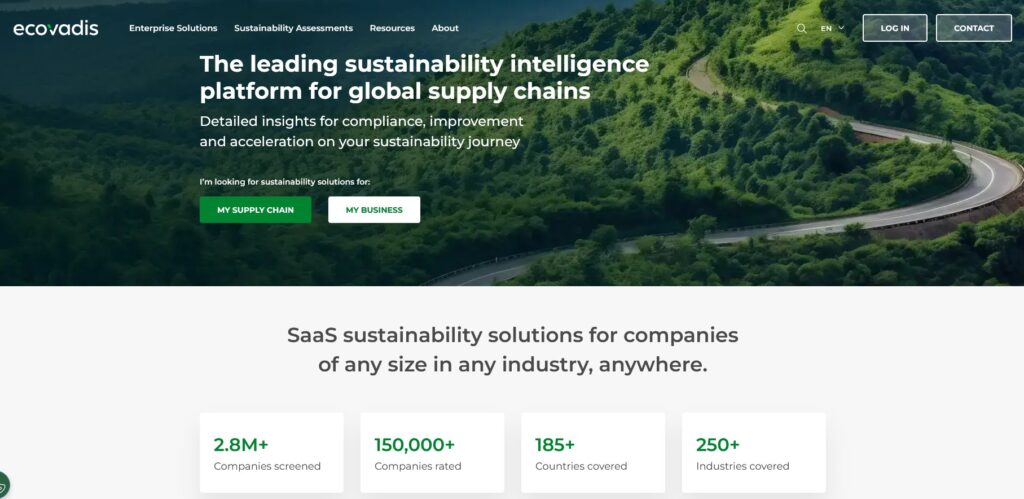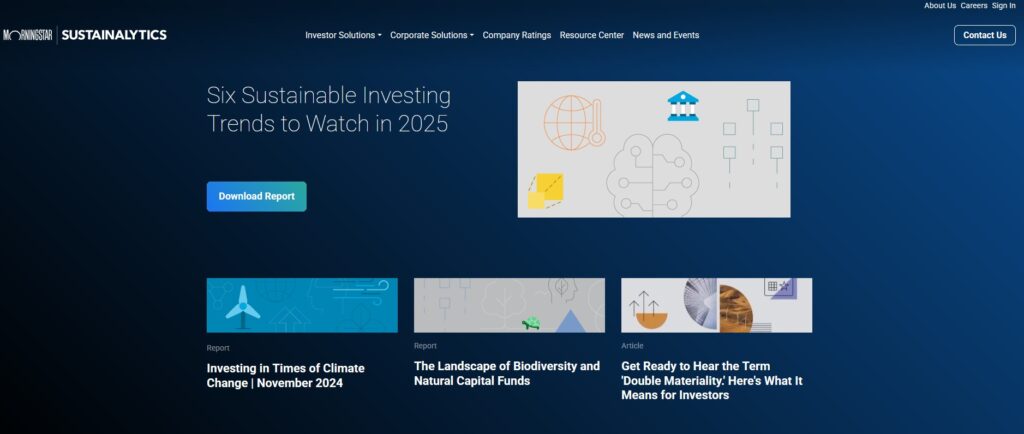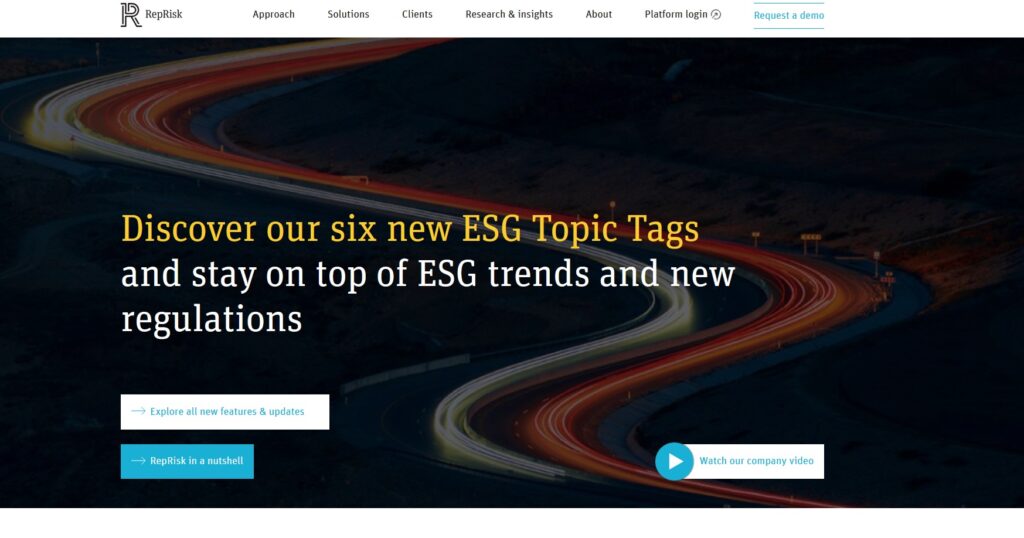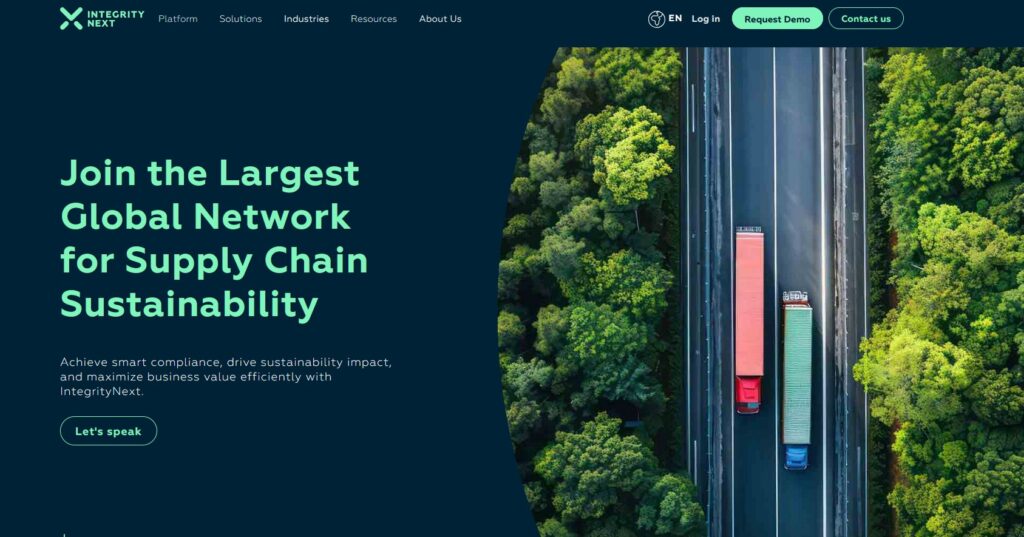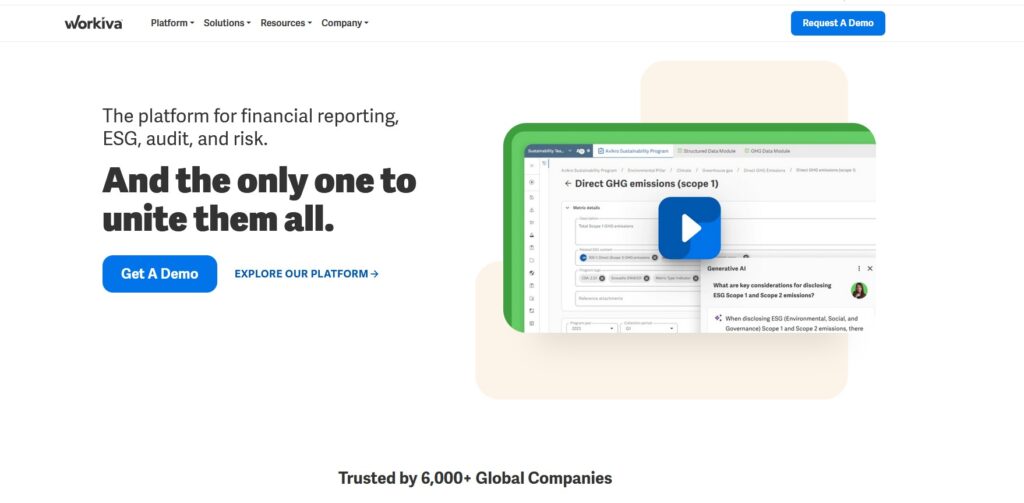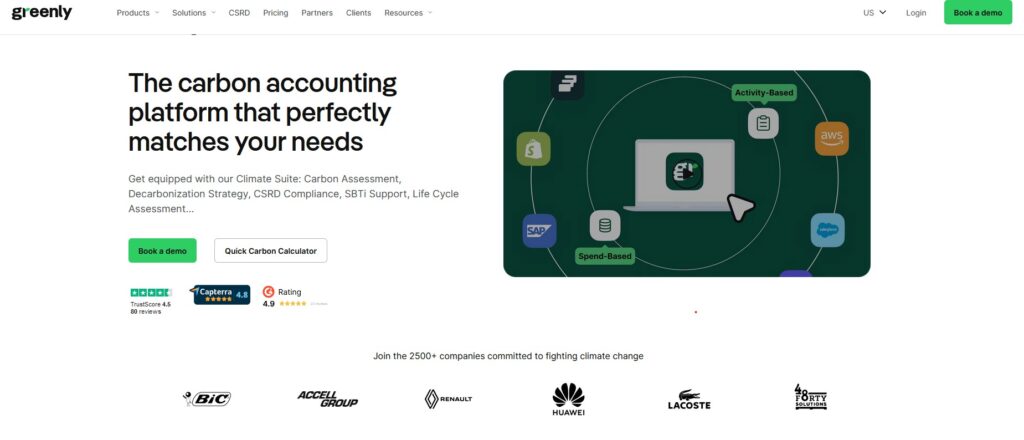Businesses are shaped by many factors that go beyond just internal operations and profitability. Three factors that have a profound impact are – Environmental, Social, and Governance (ESG). Many companies today are evaluated for these three factors along with their profitability and growth, making these factors an integral part of operations. Moreover, there are ESG compliance standards that companies must adhere to for improving their reputational and financial standings.
However, implementing sustainable and ethical practices that align with ESG goals is not easy, and this is where you need the right platforms. One of the popular choices is EcoVadis, a platform that provides detailed insights on current ESG compliance status and actionable insights for improvement.
That said, EcoVadis may not work well for all organizations because of cost considerations, feature preferences, and even industry-specific needs. This is where exploring other ESG platforms can help companies find the right solution that best aligns with their goals.
This article will highlight the top competitors and alternatives to EcoVadis, offering insights into each platform’s strengths and potential fit for your organization.
Overview of EcoVadis
EcoVadis is a leading ESG and sustainability assessment platform that allows organizations to evaluate and improve their environmental and social performance. This platform is best known for its supplier sustainability ratings, which are widely used by companies across industries to check if their supply chains align with global sustainability standards.
At its core, EcoVadis helps companies evaluate their sustainability practices through a structured assessment methodology. It is particularly valuable for organizations looking to boost their sustainability credentials and manage ESG-related risks.
Key Features
The key features of EcoVadis are:
Supplier Sustainability Ratings
EcoVadis evaluates suppliers based on a comprehensive set of criteria, including environmental impact, carbon management, labor and human rights, ethics, anti-corruption, and sustainable procurement practices. Accordingly, it provides a rating for each supplier, so organizations can make an informed decision about procuring from the right suppliers.
Comprehensive ESG Data Management
It provides tools to gather, organize, and analyze ESG-related data, making it easier for organizations to track and report on their performance. Every company gets a detailed scorecard highlighting its strengths and weaknesses. These scores range from 0 to 100, with higher scores indicating better sustainability practices.
Reporting and Benchmarking
Businesses can generate detailed reports and benchmarks to measure their ESG performance against industry standards and peers. It uses a rigorous methodology that integrates international sustainability standards such as the UN Global Compact, Global Reporting Initiative (GRI), and ISO standards.
Strengths
EcoVadis stands out for its ability to provide actionable insights through standardized assessments. Its scalable solutions are suitable for businesses of all sizes, making it a versatile option for companies with diverse supply chains. The platform’s collaborative approach, where suppliers and buyers work together to improve sustainability, enhances transparency and builds stronger business relationships.
Moreover, it also promotes accountability by providing businesses with clear insights into their ESG performance. Also, it encourages companies to adopt better practices and make informed decisions regarding their supply chains. All these strengths can help in meeting regulatory requirements while improving corporate reputation and trust with customers, investors, regulators, and other stakeholders.
Use Cases
EcoVadis works well for the following companies and scenarios.
- Companies with extensive supplier networks benefit from EcoVadis’s ability to provide consistent assessments across geographies and industries.
- Businesses prioritizing supplier sustainability and compliance find EcoVadis highly effective for ensuring their vendors meet ESG requirements.
- The platform’s multilingual support and global database make it ideal for multinational organizations.
With these use cases and features, EcoVadis has set a high standard in ESG and sustainability assessments. Still, some businesses may require alternative platforms with different focuses or specialized functionalities.
Top Competitors and Alternatives to EcoVadis
Here are some alternatives to EcoVadis.
Sustainalytics
Source: Sustainalytics
Sustainalytics is a well-known organization providing ESG research and ratings. It provides insights and assessments to institutional investors and corporations, helping them understand and manage ESG risks and opportunities. As a part of MorningStar, Sustainalytics brings ESG insights to investors across different asset classes to help everyone make informed investing decisions.
Key Features
- Comprehensive assessment of a company’s ESG risks. Ratings are based on a two-dimensional materiality framework that evaluates the severity of risks and their management across sectors.
- Assesses a company’s impact and risk profile based on 20 material ESG issues, supported by over 300 indicators.
- Offers the tools to measure and report on the environmental and social aspects, in alignment with the United Nations Sustainable Development Goals (SDGs).
- Helps companies integrate sustainability into their policies and practices.
- Provides real-time updates for informed decision-making.
- Comes with a user-friendly interface.
- Detailed analytics for tracking and comparing ESG performance.
Pros:
- High-quality analytics.
- Strong coverage across industries.
- 30 years of experience in ESG research.
- Integration with investment strategies.
- Detailed benchmarking tools.
Cons:
- Limited focus on supplier assessments when compared to EcoVadis.
- More suited for investors than supply chain management.
- Can be complex for some users.
- Expensive.
RepRisk
Source: RepRisk
RepRisk is another ESG platform associated with assessing companies and infrastructure projects. Headquartered in Zurich, it combines AI and machine learning with human insights to analyze the impact of material ESG risks on a company’s performance and reputation.
Key Features
- It manages the world’s largest database on due diligence, covering 65,000 infrastructure projects and 240,000 companies across different countries. This means clients will have the most accurate and updated information.
- Besides self-reported data from companies, RepRisk also taps into external sources like public information and media coverage to provide an objective assessment.
- The RepRisk Index (RRI) quantifies a company’s exposure to ESG risks based on 28 core ESG issues.
- Analyzes over 100,000 sources daily in multiple languages to identify adverse ESG incidents.
- The methodology is publicly available for greater transparency.
- Integrates well with risk management systems.
- Tracks sector-specific risks.
Pros:
- Focuses on reputational risks.
- Offers real-time updates.
- Comprehensive third-party data analysis.
- Strong global reach.
- User-friendly tools for financial professionals.
Cons:
- Limited functionality for supplier assessments.
- Focused more on reputational aspects.
- No traditional ESG ratings.
IntegrityNext
Source: IntegrityNext
IntegrityNext is a supply chain sustainability management platform that monitors supplier compliance and sustainability practices while focusing on ESG requirements. Based in Munich, it is an automated platform that drives sustainability and achieves smart compliance.
Key Features
- Offers pre-built self-assessments for suppliers to evaluate their compliance.
- Monitors social media for potential compliance violations.
- Covers a wide range of ESG issues including anti-bribery, human rights, health and safety, and carbon emissions.
- Automates the collection and verification of ESG data.
- Complies with the German Supply Chain Act.
- Allows users to generate GRI-certified CSR reports that provide information about the key performance indicators related to sustainability.
- Uses AI-powered insights to identify risks based on suppliers’ geolocation and product origin to help companies make informed supply chain decisions.
- Integrates well into existing ERP and risk management systems.
Pros:
- Automates supplier chain evaluations.
- Focuses on procurement and supply chain management.
- User-friendly interface.
- Real-time notifications for proactive risk management.
- Provides access to a global supplier network, which includes two million suppliers across 190 countries.
Cons:
- Can be expensive for small companies.
- Complex, as it uses multiple datasets.
- Depends on suppliers’ participation.
- Limited reporting when compared to EcoVadis.
High-Level ESG Platforms That Aren’t Direct Replacements for EcoVadis
While the above section talked about direct competitors for EcoVadis, this section discusses some high-level platforms that offer ESG capabilities but aren’t direct replacements for EcoVadis. These platforms are helpful when you want to combine ESG with other capabilities through a single platform.
Workiva
Source: Workiva
Workiva is an end-to-end ESG and sustainability reporting platform that helps meet the ESG regulations and demands in the APAC region. It also helps to evaluate the effectiveness of different strategies and make measurable progress toward an organization’s ESG goals.
Key Features
- A unified platform that combined ESG and GRC capabilities.
- Simplifies the development of ESG reports with its customizable templates.
- Its ESG accelerators calculate Scope 3 emissions. It also continuously monitors controls.
- Supports real-time collaboration among teams like finance, audit, and risk.
- Provides a reliable source of truth for ESG metrics.
Pros:
- Improves transparency.
- Integrates with other compliance platforms.
- Focus on accurate reporting.
- Offers customizable templates.
Cons:
- Lacks supplier-centric ESG assessment.
- More focused on financial compliance than supply chain management.
Greenly
Source: Greenly
Greenly is a carbon management platform that helps businesses measure their carbon emissions. Using this tool, organizations can evaluate the success of their initiatives and take steps to reduce their carbon footprint. Like Workiva, Greenly is not a direct replacement for EcoVadis, but still has many comparable features.
Key Features
- Accurate assessment of carbon emissions across Scopes 1,2, and 3.
- Its sustainability reports align with international standards like GHG protocol and CSRD.
- Provides actionable strategies to decarbonize.
- Customizable dashboards help visualize data.
- Helps organizations identify potential ESG compliance risks.
- Offers regular updates to comply with climate regulations.
Pros:
- Strong focus on emissions.
- Easy to use for companies.
- Supports carbon accounting.
- Offers international benchmarks.
Cons:
- Limited to just carbon accounting.
- Not suited for supplier assessments.
Now that we’ve analyzed the competitors and possible alternatives, let’s turn to how you can choose the right platform for your organization.
How to Choose the Right ESG Platform for Your Organization
Selecting the right ESG platform depends on many factors unique to your organization’s needs and goals. Below are the key considerations.
Alignment with Organizational Needs
Assess your organization’s size, structure, and specific ESG reporting requirements. Different platforms cater to various industries and scales, so ensure the chosen software aligns with your sustainability goals.
Regulatory Compliance
Your chosen platform must support compliance with relevant ESG reporting frameworks such as GRI, SASB, or local regulations like the EU’s Corporate Sustainability Reporting Directive (CSRD). This alignment is necessary for maintaining credibility and meeting stakeholder expectations.
Data Collection and Integration
Look for platforms that offer seamless data collection from various sources. More importantly, it must allow for easy integration through APIs.
User-Friendliness
A user-friendly interface can help your team navigate the platform easily. Consider platforms that offer intuitive designs, reducing the need for extensive training and enabling quicker adoption.
Customizability and Scalability
Your platform must have the ability to customize reporting templates and metrics according to your organization’s specific needs. Additionally, the platform must scale, as your sustainability initiatives grow, accommodating increased data volumes and reporting requirements.
Technical Support and Advisory Services
Evaluate the level of technical support provided by the vendor, including implementation assistance, training, and ongoing support. Make sure you have all the required knowledge and resources to effectively use the platform.
Credibility and Reputation of the Provider
Ideally, select established players with a track record of delivering reliable solutions. Testimonials or case studies from similar organizations can provide insights into their capabilities.
Cost-Effectiveness
Consider the total cost of ownership, including subscription fees, implementation costs, and potential additional expenses for custom features or integrations. Balance these costs against the benefits offered by the platform while making your decision.
Data Security
A key consideration is data security. Check if the platform adheres to robust data security standards for protecting sensitive information related to ESG metrics and compliance efforts.
Continuous Improvement Features
Look for platforms that provide features like materiality assessments or improvement suggestions based on collected data, which can help organizations identify areas for enhancement in their ESG practices.
The above features should guide you in selecting an appropriate platform that best meets your needs.
Conclusion
ESG compliance is becoming a central part of business operations today. While EcoVadis remains a popular choice for supplier sustainability assessments and ESG data management, there are other options. Sustainalytics, RepRisk, and IntegrityNext offer features that cater to specific needs like ESG risk analysis, reputational monitoring, and automated compliance assessments. Additionally, platforms like Workiva and Greenly provide broader ESG reporting and carbon accounting capabilities for organizations looking to take climate action.
However, the key is to choose the right platform based on your organization’s unique objectives. Evaluate your priorities and assess factors like integration, usability, and cost, to identify a platform that aligns with your sustainability goals.
